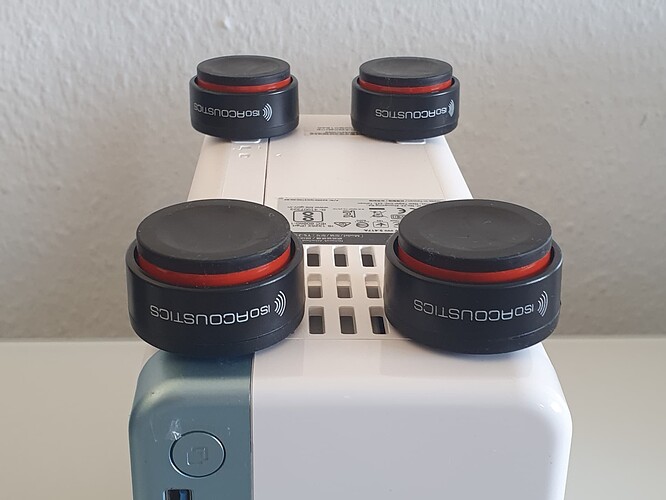HDD access has improved somewhat, but remains at an access every 4-5 seconds. I really don’t understand why Roon Server has to do this. It is simply stupid not to allow rest periods or to simply ignore or override the NAS rest periods. The solution for me so far was to deactivate the Roon app on the NAS (attention, do not uninstall it!). As a lifetime user, I’m now really frustrated with Roon after many years.
And the server log file is full of this nonsense:
12/11 15:51:03 Trace: [broker/accounts] [heartbeat] now=12/11/2023 14:51:03 nextauthrefresh=12/11/2023 15:11:04 nextmachineallocate=12/11/2023 16:01:03
12/11 15:51:05 Info: [stats] 5497mb Virtual, 902mb Physical, 314mb Managed, 315 Handles, 65 Threads
12/11 15:51:20 Info: [stats] 5513mb Virtual, 902mb Physical, 314mb Managed, 315 Handles, 67 Threads
12/11 15:51:35 Info: [stats] 5489mb Virtual, 902mb Physical, 315mb Managed, 315 Handles, 60 Threads
12/11 15:51:50 Info: [stats] 5481mb Virtual, 902mb Physical, 315mb Managed, 315 Handles, 62 Threads
12/11 15:52:05 Info: [stats] 5497mb Virtual, 902mb Physical, 314mb Managed, 315 Handles, 65 Threads
12/11 15:52:20 Info: [stats] 5505mb Virtual, 902mb Physical, 316mb Managed, 315 Handles, 66 Threads
12/11 15:52:35 Info: [stats] 5505mb Virtual, 902mb Physical, 314mb Managed, 315 Handles, 62 Threads
12/11 15:52:50 Info: [stats] 5481mb Virtual, 902mb Physical, 316mb Managed, 315 Handles, 62 Threads
12/11 15:53:05 Info: [stats] 5529mb Virtual, 902mb Physical, 315mb Managed, 315 Handles, 67 Threads
12/11 15:53:20 Info: [stats] 5529mb Virtual, 902mb Physical, 315mb Managed, 315 Handles, 68 Threads
12/11 15:53:35 Info: [stats] 5497mb Virtual, 902mb Physical, 316mb Managed, 315 Handles, 61 Threads
12/11 15:53:50 Info: [stats] 5489mb Virtual, 902mb Physical, 314mb Managed, 315 Handles, 64 Threads
12/11 15:54:05 Info: [stats] 5505mb Virtual, 902mb Physical, 315mb Managed, 315 Handles, 66 Threads
12/11 15:54:20 Info: [stats] 5513mb Virtual, 902mb Physical, 315mb Managed, 315 Handles, 67 Threads
12/11 15:54:35 Info: [stats] 5497mb Virtual, 902mb Physical, 315mb Managed, 315 Handles, 61 Threads
12/11 15:54:50 Info: [stats] 5497mb Virtual, 902mb Physical, 316mb Managed, 315 Handles, 63 Threads
12/11 15:55:05 Info: [stats] 5497mb Virtual, 902mb Physical, 316mb Managed, 315 Handles, 65 Threads
12/11 15:55:20 Info: [stats] 5505mb Virtual, 902mb Physical, 315mb Managed, 315 Handles, 66 Threads
12/11 15:55:35 Info: [stats] 5505mb Virtual, 902mb Physical, 314mb Managed, 315 Handles, 62 Threads
